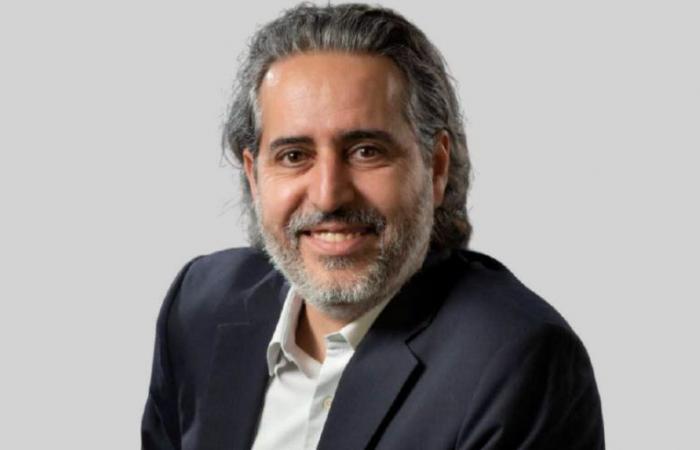Artificial intelligence is gradually intruding into the economic fabric, but it still faces structural obstacles. Nabil Haffad, expert in digital transformation, dissects these blockages and suggests ways to accelerate the integration of AI into the heart of businesses.
You support SMEs in their digital transformation. What, in your opinion, is the current state of artificial intelligence in Morocco?
It would be pretentious to draw up an exhaustive inventory, because we only have a partial vision of the market. However, based on the discussions we have had with business leaders, administrations and SMEs, we see that the adoption of AI is still in its infancy. Many are still in an assimilation phase, seeking to master this technology while evaluating its potential impact on their activities.
How does the integration of AI take place in a company?
The process is relatively simple. We start by raising awareness among top management of fundamental concepts, namely the benefits and risks associated with the adoption of AI, the implications for internal processes.
Then, once management understands these concepts, we can develop a roadmap. This is a portfolio of concrete projects where AI is applied in different functions of the company: logistics, production, etc. After this phase, we train the technical teams, we test “proof of concepts”, and we refine the projects through experimentation.
Does automation, in this context, bring notable gains?
Absolutely. AI-driven automation allows for a significant acceleration in productivity, particularly in data processing. However, despite these advantages, many companies remain stuck in the acculturation phase. Few have gone beyond this stage to truly integrate AI into their processes, due to lack of a clear vision of what this technology can bring them.
Do some business leaders anticipate a reduction in the workforce due to AI integration?
Not yet. What we are observing is rather a divergence in mentalities. Some leaders, well informed and comfortable with technological transformations, seek to take advantage of them. Others, on the other hand, remain in denial, I would say, for the moment, incapable of perceiving the extent of the systemic disruption that AI represents. That said, I believe AI will have a destructive impact on jobs, as tasks that previously required multiple people can now be accomplished by a small team of experts.
What about the added value that AI could bring to administration?
AI can indeed improve flow management and strengthen security, but beyond these aspects, its adoption in public administration would allow greater transparency. Take the example of public calls for tenders. A blockchain-based platform could not only increase transparency and efficiency, but facilitate companies’ access to public markets.
In your opinion, what are the main obstacles to the development of digital innovation in Morocco?
The pace of execution remains the main obstacle. Digital modernization has been on the agenda for more than two decades, but concrete progress is insufficient to meet current challenges. Administrations, for example, struggle to fully integrate technologies, which slows down the optimization of relations between the company and the State, or between the company and its customers. Today countries like Saudi Arabia or the United Arab Emirates, which started after us, have now largely surpassed us.
Artificial intelligence, due to its complexity, requires immense computing power. How to reconcile this with environmental issues?
This is one of the paradoxes of AI. It is extremely energy intensive. Sure, we can imagine “green” data centers, but AI consumes a huge amount of resources. The problem also arises when it comes to utility. A large part of the content processed by AI, particularly on social networks, does not provide added value. Hence the need to question the usefulness of AI in certain sectors, where its deployment could prove more costly than beneficial, particularly for trivial uses.
Is the new 2030 digital roadmap ambitious enough to support this transformation?
It presents some interesting avenues, particularly in terms of reversing the unemployment curve, particularly in disadvantaged areas and among young people. However, the crucial issue remains value creation. If we just outsource simple tasks, we will only reinforce a low value-added service economy. To truly innovate, we must encourage the development of complex projects that create qualified jobs.
What will be the next major evolution of language models (LLM)?
The evolution of language models is now based on their ability to go beyond simple text generators to become real reasoning systems. Currently, LLMs are distinguished by their speed of execution and their ability to process immense volumes of data, but they remain incapable of reasoning in the literal sense.
The next advance will lie in the development of models capable of producing reasoning similar to that of humans, by integrating more complex contextual and emotional dimensions. For the moment, AI, although extremely efficient in processing information, is not yet able to make decisions based on autonomous reflection.
How can Morocco maximize the added value of digital export?
To maximize the value of digital export, Morocco must go beyond the outsourcing of low value-added services. To date, many activities are limited to repetitive and low-skilled tasks.
The real challenge lies in producing innovative and globally competitive digital solutions. This requires investments in research and development, the training of highly qualified engineers, as well as the promotion of innovation in high-value sectors. Rather than remaining locked into a logic of low-cost services intended for export, Morocco has an interest in innovating in order to be competitive on an international scale.
Ayoub Ibnoulfassih / ECO Inspirations






